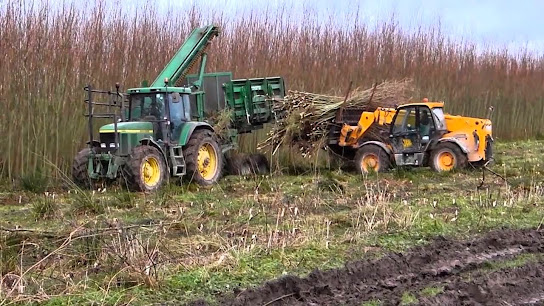A number of the
people plantations who produce
fresh fruit bunches (FFB) was not able to be
accommodated by the palm oil
mill (POM), meaning that the ratio of the number of the POMs are not comparable with
the number of palm oil plantations. Indonesia is the largest of palm
oil producer (CPO=Crude Palm Oil) in the world with an
area of oil palm plantations reach
10 million hectares
by 2013. Palm oil productivity reached 27
tons / ha / year of FFB with
a yield of CPO about 3.7 tons / ha / year, with the start
of harvest after 4-year-old
and productive period of about 25 years. With
the average price of TBS IDR 1800/kg for every hectare would
produce about IDR 48 million / year, a promising revenue from
the plantation business course. But because all the FFB can not be
processed due to the absence of
plant it will not
necessarily provide the desired benefit.
Energy plantation with
SRC is an
alternative for those who want to
develop the plantation business
investment is not so great. Plants such
as calliandra and gliricidae very easy to grow, easy care, quick harvest,
continue to be productive for about
25 years and
fertilize the soil. Increasing the value
added can be done with eg intercropping with
crops. Unused land and marginal land could
be pursued to the
energy plantaion with thse plants. With the productivity of wood biomass around 20 tons / ha / year, with a price, let’s say, IDR 400/kg it will get a IDR 8
million / year
for each hectare,
it is far below
of the economic aspect of palm oil
plantation, but by the age of 1 year
can be harvested, seeds and maintenance costs
also very cheap,
then it could be
a consideration.
The price of modern palm
oil mill average price of IDR
4 M for every tonne of FFB
/ hour. With POM 45
tons FFB /
hour capacity it takes an investment IDR 180 M, a large amount of investment. As for the price of wood pellet mill capacity of 3
tons / hour
range from IDR 5 M
to become more affordable.
Economic analysis of palm oil mill and wood
pellet mill is
almost the same, with the average
ROI (Return on Investment) of 3.5 years.










No comments:
Post a Comment